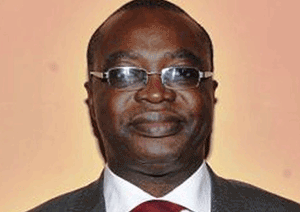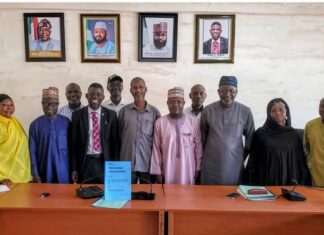•40 PRCAN members can’t pay salaries, sack looms
Public relations in Nigeria is on the ropes.
Only eight out of the 48 members of the Public Relations Consultants Association of Nigeria (PRCAN) pay workers regularly, evidence of the torrid times, and reason for the firings and the wage slash across the industry.
Chido Nwakanma
Investigation showed that only six PRCAN members can sustain their operations; the rest are struggling in a business environment of poor corporate patronage, client payment structure, guerrilla tactics by quacks, and a lack of competitive edge.
Several thousand more jobs are threatened by poor billings, no pitch fee, government apathy, unfriendly banking system, and non patronage by small and medium sized enterprises (SMEs).
Importance of PR
PR is more important than ever in today’s socially connected world. A single tweet from the right individual could be worth more than a corporation’s advertising budget.
Consumers are looking up businesses online, reading reviews, tweeting about products, and crowdsourcing experience with brands.
From an insignificant number of PR practitioners in the days of Mike Okereke, the number has grown exponentially.
Apart from Nigerian Institute of Public Relations (NIPR) certified members without agencies, there are 48 registered consultants nationwide. Lagos boasts 45, Abuja three.
The increasing importance of PR is highlighted by the $1.2 million contract the federal government signed with Levick, a public relations and lobbying firm based in Washington, to deal with the fallout from the Boko Haram insurgency and other negative publicities in the North.
The All Progressives Congress (APC) also engaged another public relations and public affairs consultancy based in the United States, AKPD Message and Media, to manage its campaign for the 2015 elections.
The party reportedly paid $1.2 million.
PR in marketing space
The Nigerian situation makes a mess of Al Ries’ bestseller, The Fall of Advertising and The Rise of PR. Contrary to his prediction, advertising has continued to earn respect and recognition while PR is treated as its poor cousin.
Even innovation in the industry, brand activation and experiential marketing, is far respected than PR in terms of budget allocation and preference. Practitioners are aware of the trend and a salvage operation is in the works.
Government apathy
Government is the biggest enterprise in Nigeria, where the three tiers combined have huge resources to spend on projects. But the government shuns local players and pitch tent with foreign PR practitioners.
If Abuja had pulled two or three agencies together and paid them the $1.2 million given to Levick, the agencies would pay staff, top up the living wage, and hire more workers.
PRCAN President, Chido Nwakanma, expressed dismay that the government is not practising what it preaches.
“We received with utter shock the news that the All Progressive Congress and FG have contracted a foreign public relations firm to manage its campaign and image respectively,” he said.
No billing mark
A top PR practitioner who preferred anonymity confirmed that PR is suffering because it lacks structure. “We are the only profession in IMC (integrated marketing communication) without billing mark,” he noted.
Billing is better structured in advertising than in PR. In most cases, there is no formal contract; agencies are reduced to pay as you go, in other words, project by project.
A senior marketing director in a corporate firm said most organisations have PR departments, and “consultants can only be beckoned upon to handle some of these jobs on occasion that the volume is huge, hence there is no need to engage them permanently.”
But PRCAN Publicity Secretary, Israel Jaiye Opayemi, countered that billing is a standard practice, whether in temporary or permanent engagement.
He urged stakeholders to team up to stop the unfavourable trend.
Faulty banking system
Stakeholders have argued that the financial policy in the country does not help local business. Most times, it is easier for a camel to pass through the eye of the needle than for an SME to obtain a loan from a Nigerian bank.
With 26 per cent interest, and the corporations’ 90-day payment policy, Opayemi said it is difficult for a medium size PR agency to survive.
A manager with Skye Bank in Ikeja, Lagos insisted that the policy was made by the Central Bank of Nigeria (CBN).
Operators turn to individuals to borrow funds at 10 per cent interest.
Struggle continues
Other challenges include a lack of pitch fee and client’s 90-day payment system.
According to Ephraim Okereke, a PR expert based in Lagos, pitch fee is a professional standard practice in most markets but a mirage in Nigeria, and that is why local agencies are struggling.
The payment system is also a major setback, added Mirror Communications Managing Director (MD), Muhammed Danladi.
South African example
An average MD in a small size PR firm in South Africa earns R35,000 (N647,500), medium size R50,000 (N925,000), and large R100,000 (N1.85 million). No Nigerian MD in a local agency earns anything close.
The South African market, which is not as vibrant as Nigeria’s in activities and prospects, is the most profitable in Africa. There, agencies receive mobilisation fees ahead of implementation.
Break even agencies
In Nigeria, a few agencies breast the tape while some remain strugglers.
Those staying afloat include The Quadrant Company, CandF, Black House Media, Mediacraft, Chain Reaction Nigeria, Absolute PR, and Neo Media and Marketing.
They break even, despite huddles, because they handle multinational brands, the likes of Nigerian Breweries, Guinness, Dettol, Unilever.













